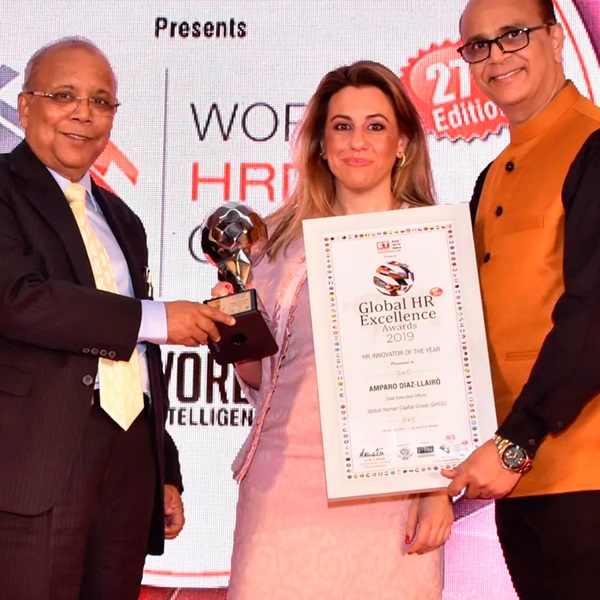During his visit to Mumbai, Amparo Díaz-Llairó gave a masterful conference entitled “How to attract talent in the new digital era”, at the end of his speech he signed copies of his latest work in English “Talent 3.0”.
Among the invited world expert speakers in Human Resources was also the American Dr. Marshall Goldsmith, world leader coach according to Forbes and author of 36 books on leadership. The central theme focused on what is a global challenge for all countries: the “Future of work in the world” and discussed on Technology, Artificial Intelligence without forgetting human emotions.
Amparo Díaz-Llairó is CEO at Global Human Capital Group (GHCG), an international consulting firm that offers strategic solutions aimed at the human capital of organizations and Associate Professor of the Master Work, Organizational, and Personnel Psychology (WOP-P) in the area of Social Psychology at the University of Barcelona (UB).
Degree in Labor Sciences and Diploma in Business Sciences from the University of Barcelona and the London Metropolitan University.
He has taught more than 500 conferences and courses around the world and has written 5 books on these topics, the most recent ones: “Talent 3.0”, and “Here is a job and we will teach you how to look for it”.
Díaz-Llairó indicated in his conference at the Global Congress of Human Resources in Mumbai that according to a study by the University of Oxford, nearly 700 professions will be replaced by machines in 20 years. Furthermore, based on the macroeconomic forecasts of the European Union, it is estimated that robots will perform 47% of the tasks that today are carried out today by human beings.


